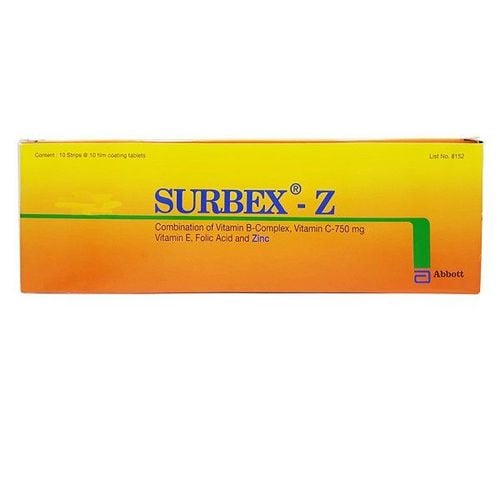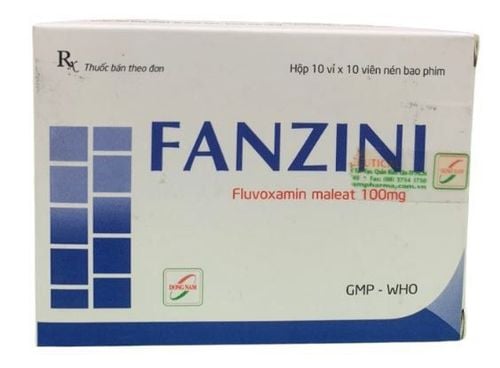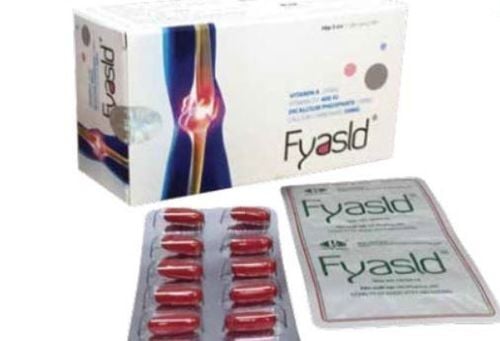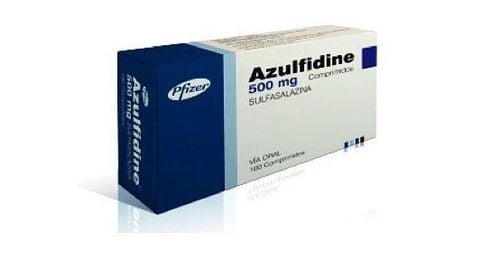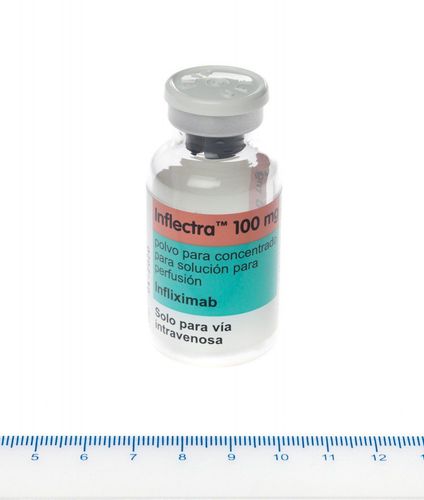This is an automatically translated article.
Zinc is a mineral that our bodies use to fight infections and produce cells. It's important for wound healing and for making DNA, the genetic blueprint in all your cells. In particular, researchers have also evaluated the influence of zinc deficiency on height growth and anemia.1. How does zinc deficiency affect health?
Zinc deficiency is characterized by growth retardation, anorexia and impaired immune function. In more severe cases, zinc deficiency causes hair loss, diarrhea, delayed sexual development, impotence, hypogonadism in men, and eye and skin lesions.Weight loss, delayed wound healing, taste abnormalities, and mental lethargy may also occur. Many of these symptoms are non-specific and are often associated with other health conditions, so a physical exam is necessary to determine for sure if zinc deficiency is present.
The nutritional status of zinc is difficult to fully measure by laboratory tests due to its distribution in the body as a component of many proteins and nucleic acids.
Plasma or serum zinc concentrations are the most commonly used indices to assess zinc deficiency, but these concentrations do not necessarily reflect intracellular zinc status due to internal control mechanisms. tight lips.
The clinical effects of zinc deficiency may appear in the absence of laboratory abnormalities. Clinicians consider risk factors (such as inadequate caloric intake, alcoholism, gastrointestinal diseases) and symptoms of zinc deficiency (such as impaired growth in infants and children) when determine the need for zinc supplementation.
Zinc deficiency occurs usually due to insufficient absorption of zinc, the body loses more zinc or due to increased zinc requirements. People who are at risk of being deficient or not getting enough zinc need a good source of zinc in their daily diet. Zinc supplements may also be appropriate in certain cases.
Situations at risk of zinc deficiency include:
People with gastrointestinal disease and other conditions: Gastrointestinal surgery and digestive disorders (such as ulcerative colitis, Crohn's disease or short bowel syndrome) ) may decrease zinc absorption, increasing endogenous zinc loss mainly from the gastrointestinal tract and to a lesser extent from the kidney. Other diseases associated with zinc deficiency include malabsorption syndromes, chronic liver disease, chronic kidney disease, sickle cell disease, diabetes, and other malignancies and chronic diseases. Chronic diarrhea also leads to excessive loss of zinc. Vegetarians: In addition to other nutrient deficiencies, the amount of zinc you get from a vegetarian diet is lower than from a non-vegetarian diet because vegetarians don't eat meat, which is high in zinc and has high nutritional value. can enhance zinc absorption. In addition, vegetarians often eat more beans and whole grains, which contain phytate that binds to zinc and inhibits its absorption. Vegetarians sometimes require 50% more of the Recommended Dietary Allowance (RDA) for zinc than non-vegetarians. In addition, they may benefit from using certain food preparation techniques to reduce the binding of zinc by phytate and increase its absorption. Techniques to increase zinc absorption include soaking beans, grains, and seeds in water for several hours before cooking and leaving them after soaking until sprouts have formed. Vegetarians can also increase zinc absorption by consuming more leavened grain products (such as bread) than unleavened products (such as crackers) because yeast breaks down a phytate fraction. As a result, the body absorbs more zinc from yeasted grains than from unleavened grains. Pregnancy and breast-feeding: Pregnant women, especially those who begin their pregnancy with a zinc deficiency, are at increased risk of zinc deficiency due to the high need for zinc of the fetus. Breastfeeding can also deplete a mother's zinc stores. For these reasons, the RDA for zinc in pregnant and lactating women is higher than in other women.

Phụ nữ mang thai có nhiều nguy cơ bị thiếu kẽm
2. How does zinc deficiency affect height growth and anemia?
The benefit of zinc or multiple micronutrient supplementation in African children is uncertain. Children in Africa may differ from other groups of children in developing countries because of differences in the prevalence of zinc deficiency, low birth weight and preterm birth, recurrent or chronic infections such as HIV or the quality of their diet. Dietary supplements and genetic polymorphisms affecting iron metabolism.There is a study conducted with the aim of determining whether the addition of zinc or multi-micronutrients to vitamin A supplementation improves height growth or reduces the incidence of anemia in children from 6-24 months old or not.
That study method was a randomized, double-blind, controlled trial of prophylactic micronutrient supplementation for infants 6-24 months of age. Children in the three cohorts - 32 HIV-infected, 154 HIV-uninfected children born to HIV-infected mothers, and 187 uninfected children born to HIV-negative mothers - were randomly assigned separately to receive vitamin A (VA). ) daily, vitamin A plus zinc or multiple micronutrients including vitamin A and zinc
Result: Among all children, there was no significant difference between intervention groups in change in Z score by age (LAZ) for 18 months. Among the stunted children, those who received MM had a 0.7 Z-score improvement in the LAZ compared with a 0.3-point decrease in the VAZ and 0.2 in the VA.
In 154 HIV-uninfected children, MM ameliorated the effect of repeated diarrhea on growth. Among children who experienced more than 6 episodes, those treated with MM did not have a decrease in LAZ compared with 0.5 and 0.6 Z-score reductions in children receiving VAZ and VA respectively. After 12 months, there was a 24% reduction in the incidence of anemia (hemoglobin less than 11g/dL) in the MM group, 11% in the VAZ and 18% in the VA. Although these changes were significant, the differences between groups were not significant.
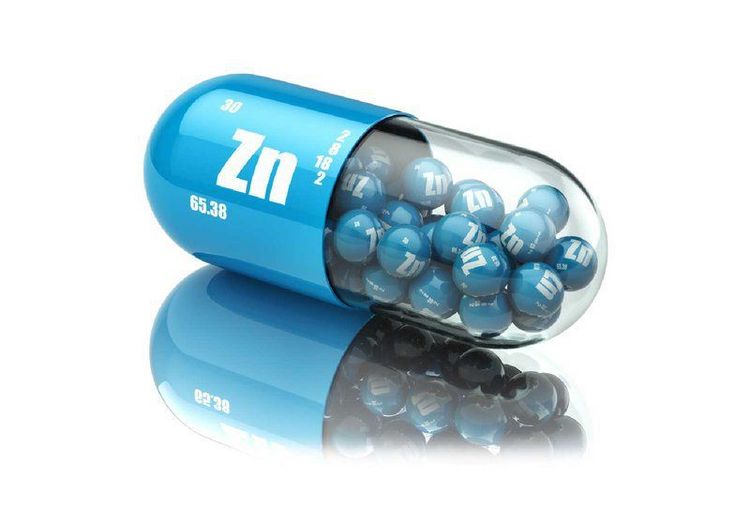
Thiếu kẽm ảnh hưởng đến tăng trưởng chiều cao và thiếu máu
In case parents suspect that their child is zinc deficient, anemic and stunted, it is best to consult a doctor for appropriate treatment to avoid affecting the physical and motor development of the child. .
Children need to provide enough elemental zinc/day for them to eat well, reach the correct height and weight and exceed the standard. Zinc plays a role in affecting most biological processes taking place in the body, especially the breakdown of nucleic acids, proteins... Organs in the body when zinc deficiency can lead to a There are a number of diseases such as neurological disorders, irritability, etc. Therefore, parents need to learn about the role of zinc and guide them to appropriate zinc supplements for their children.
In addition to zinc, parents also need to supplement their children with other important vitamins and minerals such as lysine, chromium, B vitamins,... errands.
Please regularly visit Vinmec.com website and update useful information to take care of your baby and family.
To have more knowledge about taking care of children according to age, please visit the website (vinmec.com) regularly and make an appointment with the leading doctors, Pediatricians - Nutrition experts when you need advice.
References: clinicaltrials.gov, pubmed.ncbi.nlm.nih.gov, ods.od.nih.gov, healthline.com




